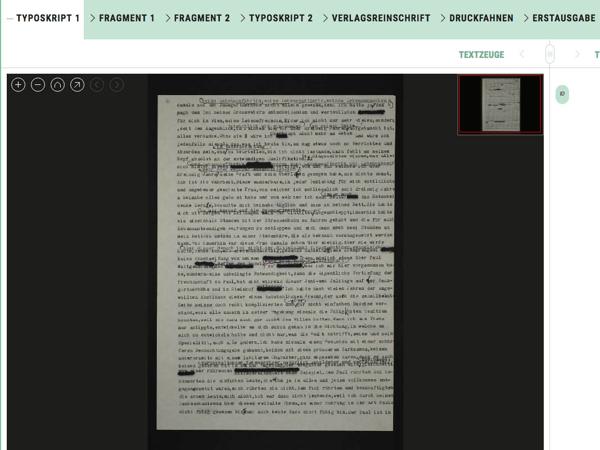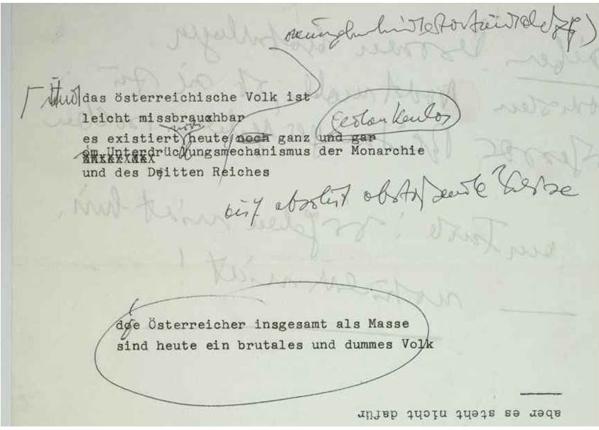The new critical editions of Thomas Bernhard are online
[ad_1]
It took death for Thomas Bernhard to rise to the Olympus of Austria’s leading intellectuals. Before his death in 1989, his relations with his homeland were difficult and troubled by sensational media scandals. Now, however, few in Vienna or Salzburg question his qualities and his ability to already be a de facto classic of literature and theatre, furthermore verifying his statement “I am a world writer”.
Although Bernhard with his will had launched an anathema against Austria, among other things blocking new productions of his works “for the duration of the copyright” (even if his executor and half-brother Peter Fabjan later broke that will at the end of the 1990s, effectively annulling it), last December the Austrian state finally doused its head in ashes, so to speak, and with a sort of expensive reparation deed, paid out 2.1 million euros to secure the property of his bequest: “One of the most important acquisitions in the history of the Austrian National Library”, as the director Johanna Racinger commented.
In reality, that precious corpus of materials had already been studied in depth between 2014 and 2018 by the Austrian Academy of Sciences, which had been able to completely digitize it. After that first scientific approach, the authoritative institution which, among other things, also probed Arthur Schnitzler and Karl Kraus, created the first historical-critical edition of “Wittgenstein’s nephew” and is now working on the most symbolic of Bernhard’s comedies: “Heroes’ Square”.
“Wittgenstein’s nephew”
The short novel that appeared in 1982 with the subtitle “A friendship”, focused on the personal relationship between the eccentric Paul Wittgenstein, nephew of the philosopher, and the author. In the background: the vast hospital complex on the wooded hills of Vienna’s 14th district, in whose psychiatric clinic Wittgenstein was repeatedly admitted and in whose sanatorium Bernhard was a patient. The critical edition edited by Barbara Tumfart, Silvia Waltl and Konstanze Fliedl, and available online, reconstructs the genesis of this work, presenting, among other things, each page in facsimile. It is therefore possible to follow deletions, corrections, additions, entering the writer’s creative laboratory, also documented by a set of analytical indexes on people, places, works, events.
“Defiler of the Fatherland”
The structure of the work on “Wittgenstein’s nephew” has now also been adopted for the new critical edition of “Heroes’ Square”, whose political substratum linked to the fiftieth anniversary of Austria’s annexation to the Third Reich triggered a furious controversy in 1988 (his accusations that it was still a nation of “six million Nazis” and that in 1988 “everything was worse than 50 years ago” remained famous: phrases that earned him the label of “defiler of the homeland”). The online release of the Academy’s new work is scheduled for later this year. However, there are likely to be more surprises in the future. The legacy acquired by the Austrian state also contains 500 letters between Thomas and Hedwig Stavianicek, the woman much older than him, who was particularly close to him, and 150 unpublished texts: materials that for the next ten years will require a special authorization from the by Peter Fabjan for viewing by researchers or for publication.
[ad_2]
Source link














